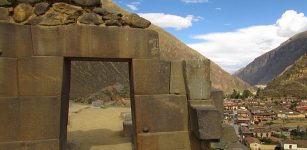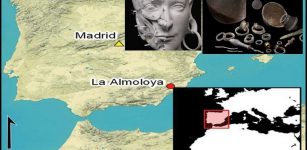Los Millares – 5,000-Year-Old Advanced Copper City In Europe
A. Sutherland – MessageToEagle.com – About 5,000 years ago, Los Millares, was the biggest and most important town in Europe. The ruins of the city of Los Millares are situated in a plateau, at an altitude of 270 meters – perfectly chosen strategic location near Almeria, on the southern coast of Spain.
People of Los Millares possessed highly developed technical knowledge, and introducted copper metallurgy in the Western Mediterranean Sea. They also developed farming and built a vast necropolis for collective burials.
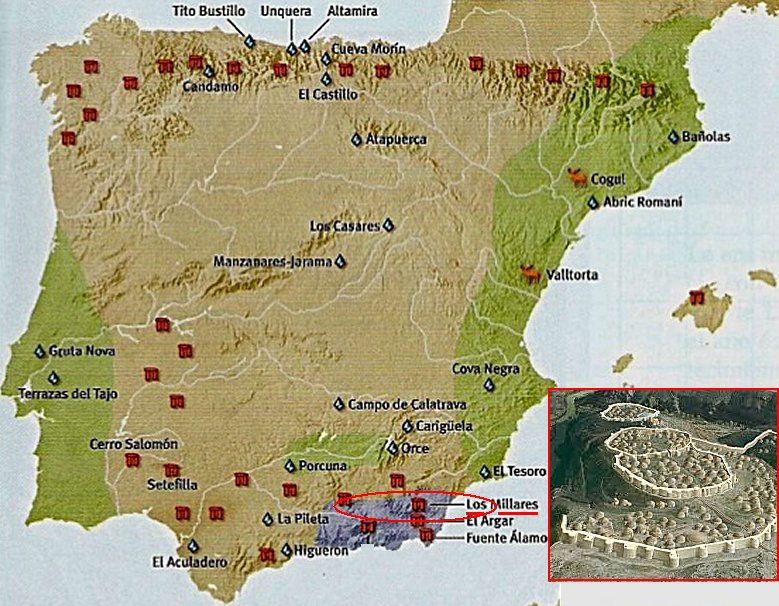
Inhabited by approximately 1,000 people at the time of maximum splendor, the city had an extensive and complex defensive system of strong defensive walls, forts with several outposts for protection.
The history of the site is not yet exactly known, but historians are certain it was abandoned about 250 years after the pyramids were built in ancient Egypt.
After many years of plunder and neglect, the city’s historical importance was finally recognized thanks to the first excavation made in 1891 by two Belgian mining engineers, Luis Siret and his brother, who became intrigued by the city’s archaeological remains.
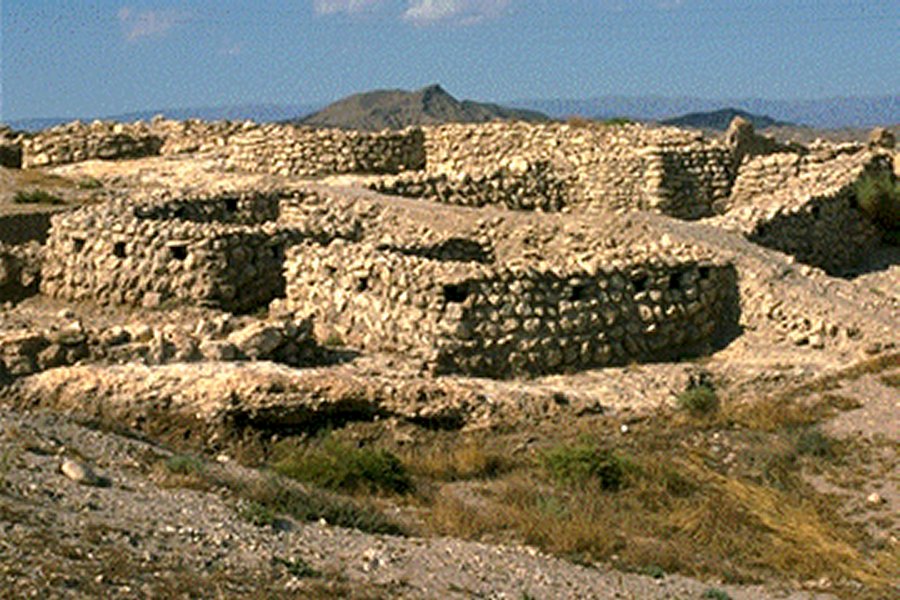
Only sparsely excavated site revealed, a large number of circular huts with a diameter of 4 to 7 meters, with stone plinths, earthen floors, made of rammed earth, stone mills a silo dug in the ground.
Finally, the city looked like the fortified fortress with the four lines of six meter (20 ft) thick walls; the last one was 310 meters long and 4 meters high and punctuated at intervals of twelve to fifteen meters, with a sophisticated gateway, a series of towers and 15 bunkers for outer defense and a water cistern.
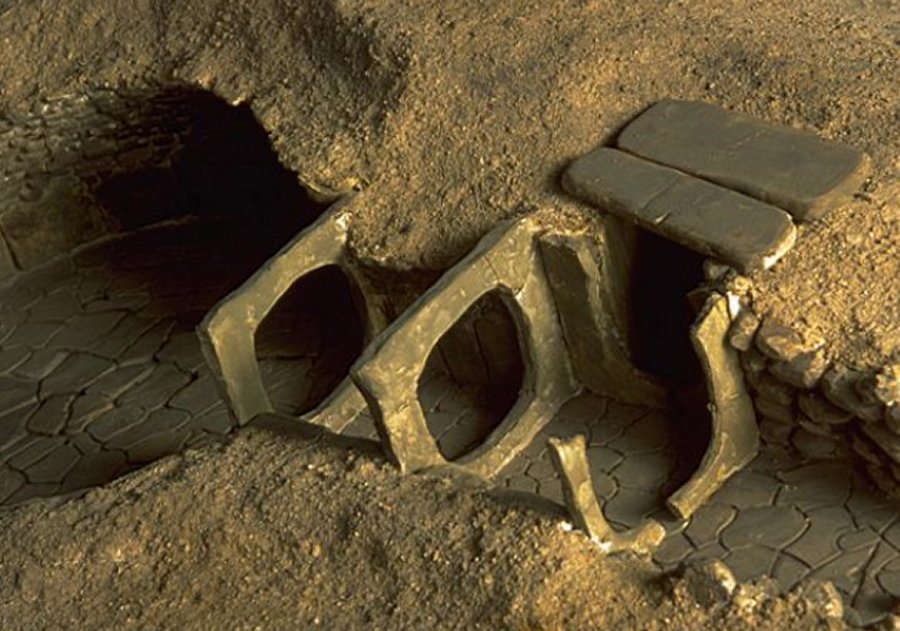
A number of simple dwellings lay inside the citadel, as well as a complex structure with traces of smelting and a hall-like rectangular stone building that was probably used for inhabitants meetings, ceremonies and other entertainment.
The necropolis called ‘city of the dead’, consists of a collective burial mound and about 100 tombs, ‘tholos tombs’ – beehive tombs.
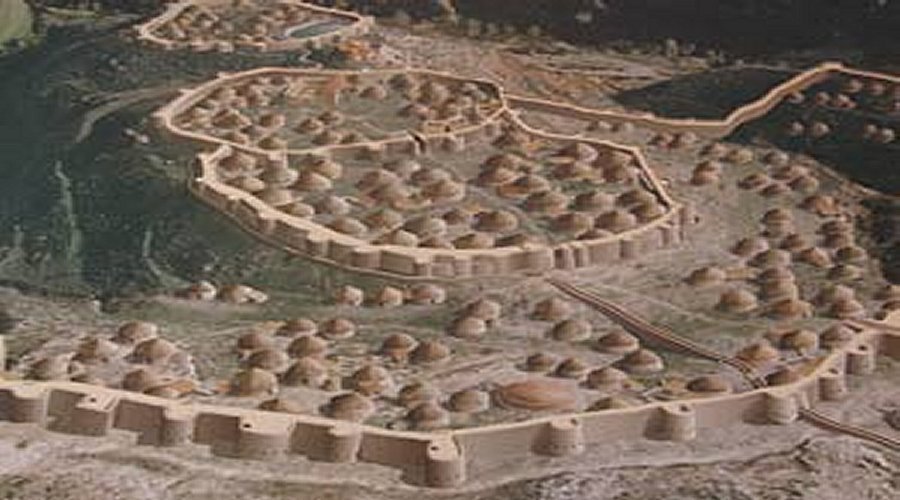
Similar have been discovered in Turkey and Greece, and built with stone roof forming a dome and an interior structure composed of an atrium or hall, a corridor separated by slabs of slate and a circular perforated chamber about four meters in diameter lined with a slate plinth.
The graves were decorated with symbolic ceramic objects, metal weapons, richly decorated ivory items and many idols.
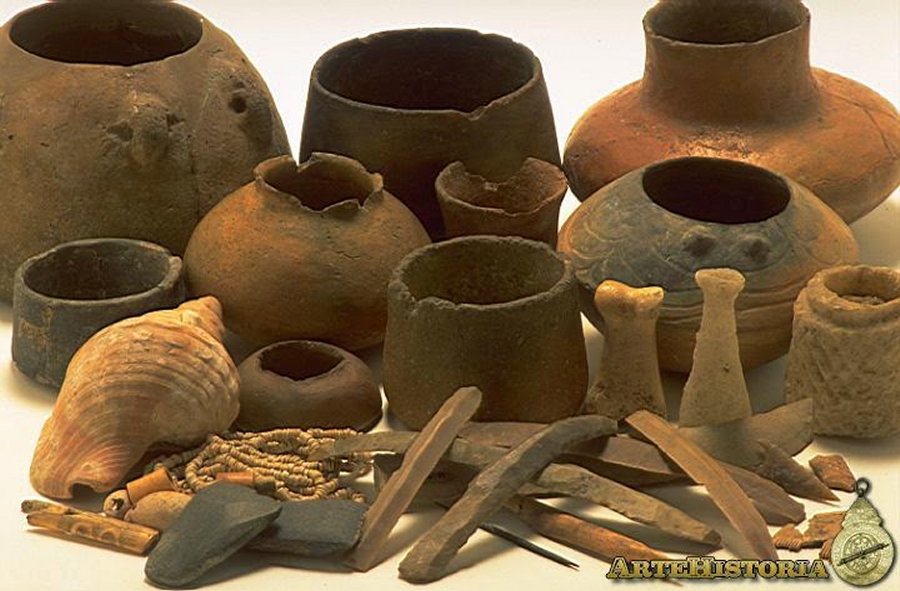
In excavations of some circular cabins located close to the defensive walls of the town, archaeologists unearthed numerous household objects such as plates, dishes, pots, traces of cheese making, arrows, and handmade clay objects.
See also:
Mystery Of Ancient Beehive Tombs Around The World
There are still many unanswered questions regarding this most impressive and mysterious city of Neolithic Europe.
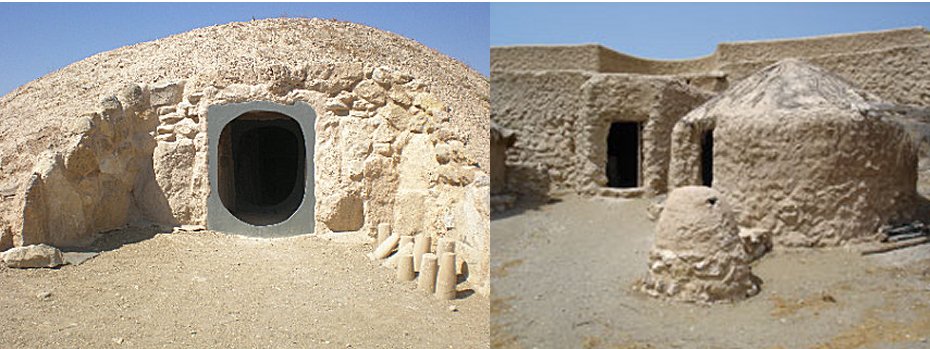
How did they obtain advanced metal smelting techniques? How did metal culture of Los Milllares evolve? What kind of danger did the inhabitants face? Was the harassment of the city’s population related to the possession of copper mines and the existence of a metallurgy highly developed copper?
Recent carbon testing showed that the Los Millares existed much earlier than previously thought; so the appearance of metallurgy in this area would have a local explanation by the existence and development of a previous culture (Culture of Almería), 3,000 years BC.
A. Sutherland – MessageToEagle.com Staff Writer
Copyright © MessageToEagle.com All rights reserved. This material may not be published, broadcast, rewritten or redistributed in whole or part without the express written permission of MessageToEagle.com
Expand for references
